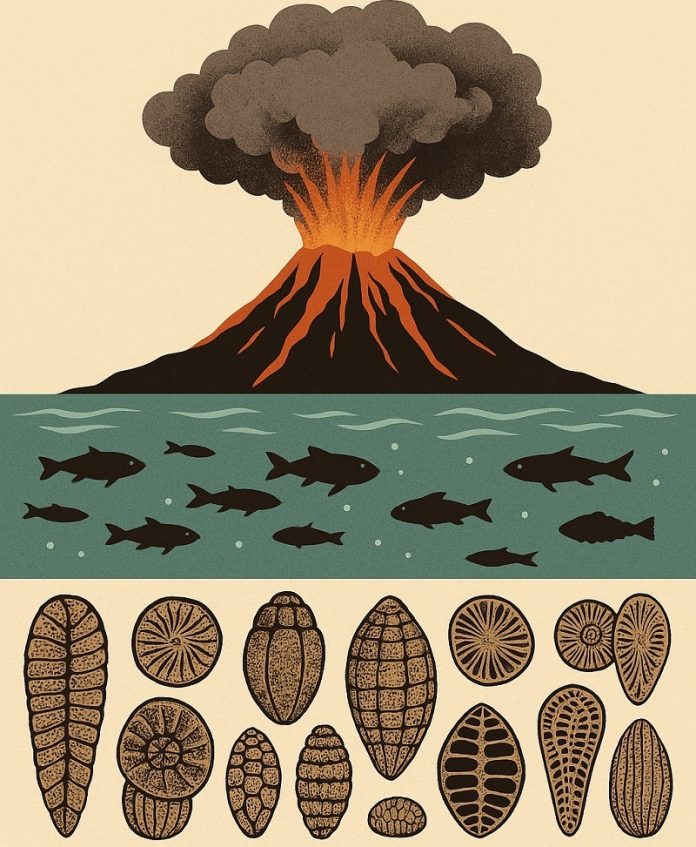
A new study has uncovered strong evidence that past volcanic eruptions triggered dramatic climate changes that wiped out large parts of marine life—offering a stark warning about the effects of today’s human-driven global warming.
An international research team led by Professor Shuzhong Shen from Nanjing University published the study in Science Advances.
By using high-resolution fossil data and advanced computing tools, the scientists revealed that over 300 million years ago, Earth’s oceans went through cycles of booming biodiversity and sudden mass extinctions—all closely linked to swings in global temperature.
The researchers focused on a group of tiny but once-abundant marine organisms called fusuline foraminifera.
These single-celled creatures lived on the ocean floor and played a major role in building ancient carbonate rocks, earning them the nickname “carbonate rock factories.” They were hugely successful for millions of years—until Earth’s climate shifted.
The study shows that global cooling led to evolutionary bursts, with new species of fusuline rapidly emerging and diversifying.
But sudden warming, especially from volcanic eruptions, caused massive extinctions. In particular, after the volcanic activity in the Emeishan region around 260 million years ago, large fusuline species began to disappear.
Then came the end-Permian supervolcanic eruption 252 million years ago—the most catastrophic in Earth’s history—which wiped them out completely.
What’s especially alarming is that today’s warming, caused by human emissions of greenhouse gases, is happening much faster than the ancient warming linked to these deadly volcanic events.
According to the study, this raises serious concerns for modern marine ecosystems, which could be heading for similar extinction events if warming continues unchecked.
One of the biggest breakthroughs in the study is the creation of the world’s most detailed fossil-based timeline of fusuline evolution. Using data from 299 fossil-rich rock layers and over 2,000 species, the team used powerful AI and supercomputing tools to build a timeline with a resolution of less than 45,000 years. This level of detail allowed scientists to track how species evolved or disappeared in response to climate shifts.
Professor Shen said the research clearly shows how past climate changes shaped life in the oceans, and it offers a crucial message for today’s world: to protect biodiversity, we must take urgent action on climate change.
The study was co-authored by Zhang Shuhan and Zhao Yingying, Ph.D. students at Nanjing University, with Professors Shi Yukun and Shuzhong Shen as the corresponding authors. Their work adds important context to the global discussion on climate change and the fragile balance of life on Earth.
Source: KSR.



